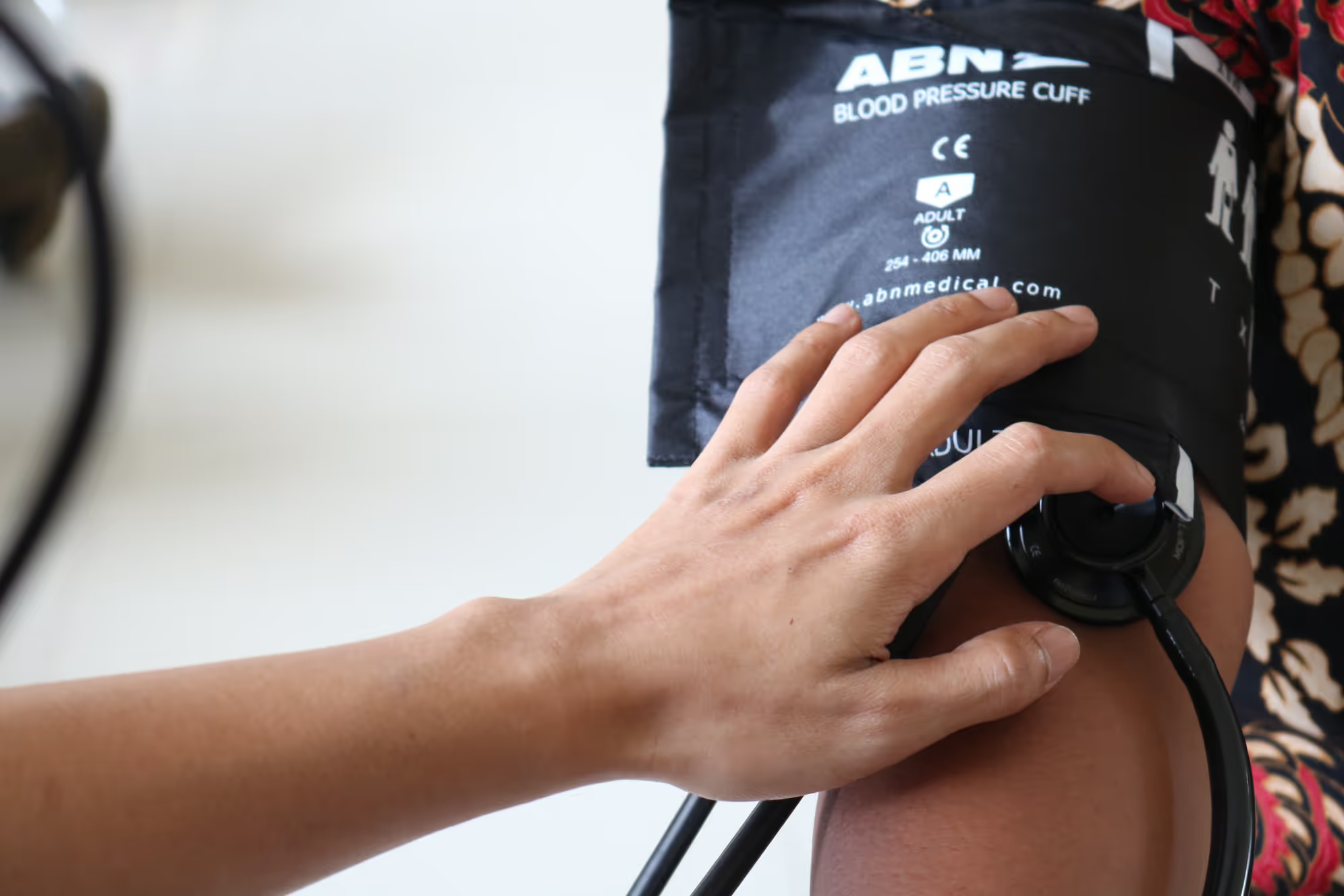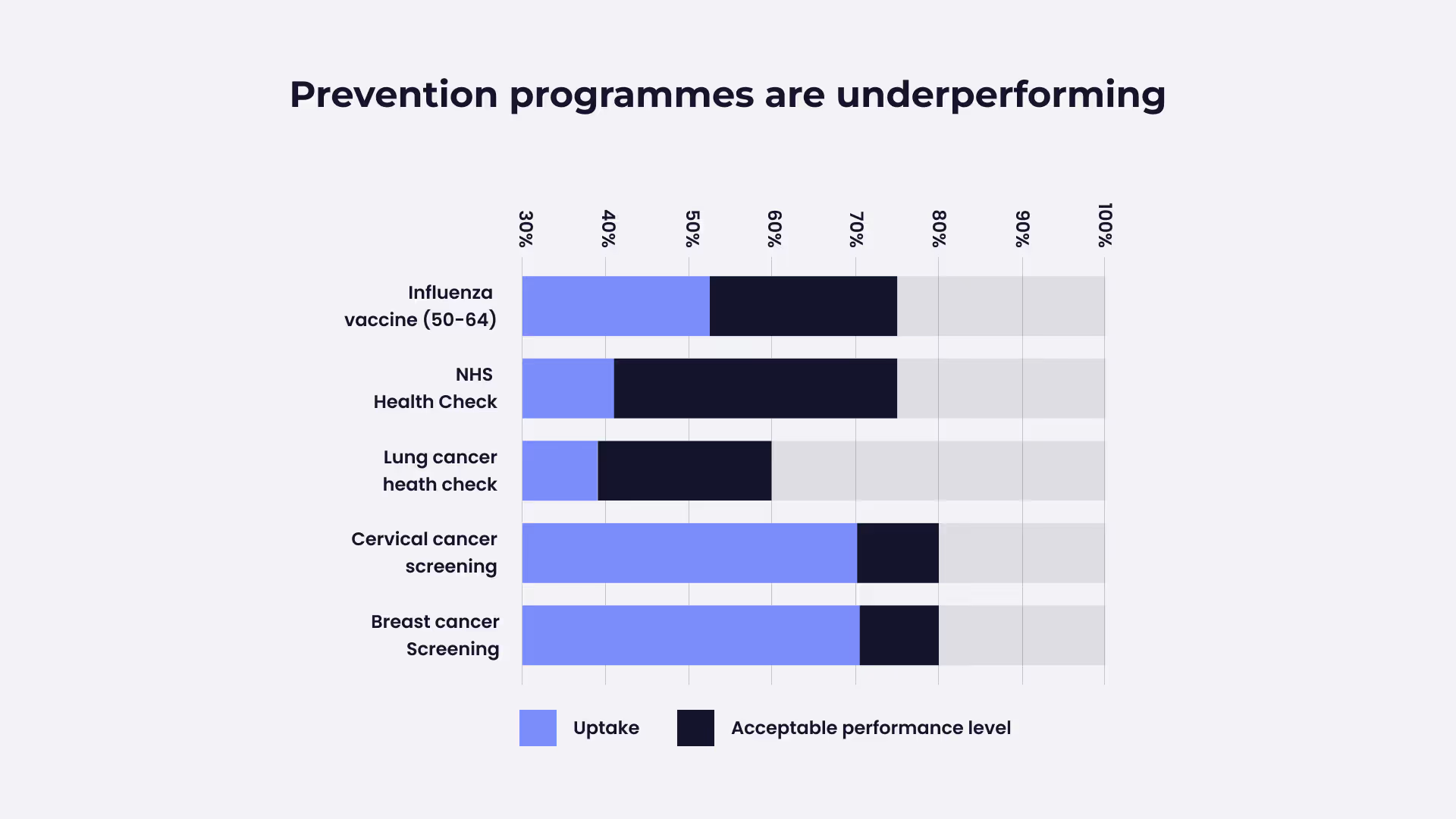Is preventive healthcare under prioritised?

It’s five hundred years since Erasmus said that prevention was better than cure. These words still ring true today.
Preventing ill-health within the population is essential to maintaining a healthier society, reducing health inequalities, and controlling the long-term trend of rising healthcare costs. Whilst not all health conditions are preventable, the diseases that are responsible for the majority of healthcare costs in a modern society – including cancer, cardiovascular disease and diabetes – have preventable elements where early intervention can reduce the chances of a more serious condition developing.
As a result, catching these conditions early saves lives. For example, over 99% of cervical cancer cases are preventable through a combination of the HPV vaccine and regular screening. However, 4.6 million of those individuals who are eligible for screening have never been screened or have missed their most recent screening.
Doing more to increase the uptake of preventive healthcare will prevent illness and improve population health. There will be less pressure on the NHS and, in the long term, more financial and human resources available for essential patient care.
Preventive healthcare programmes are underperforming
Healthcare in the UK is too heavily focused on treatment rather than prevention. In 2021, healthcare expenditure was £280.7 billion. Only £35 billion was spent on preventive healthcare, and £6.4 billion of that budget was spent on the COVID-19 vaccination programme. There isn’t enough being done to ensure that keeping people well is the first priority in healthcare. Data supports this view.
The figures for national prevention programmes show an alarming underperformance. Cervical and breast cancer screening programme uptake were found to be 10% below acceptable performance levels, whilst flu vaccine and lung cancer screening uptake were 20% below acceptable performance levels and the flagship cardiovascular prevention programme, the NHS health check, is falling 36% short.

So why are preventive healthcare programmes so drastically underperforming? There are many contributing factors:
Accessibility failures
Barriers to screening preceded the COVID-19 pandemic and still exist today. Research has found that those living in more deprived areas are less likely to attend screenings and vaccine uptake is lower in these areas, especially amongst non-white ethnic groups.
Lack of public understanding and awareness
For those who have heard about a screening or vaccinations programme, misunderstanding and misinformation work alongside more legitimate concerns to reduce individual’s motivation to participate. But even more worrying – many eligible individuals don’t have never heard about a programme, or don’t realise that they are eligible.
Lack of digitalisation
Many of the IT systems that underpin preventive healthcare programmes are not fit for purpose and are not robust enough to meet modern requirements. There’s a lack of access to quality data that will help targeted screening and vaccination programmes whilst legacy NHS IT infrastructure can often hinder, rather than help, primary care workflows.
Improving programme performance
There isn’t a silver-bullet solution for improving the performance of preventive programmes, however there are numerous small improvements that collectively and over time can improve participation and help lay the foundations for more effective programme delivery.
Improving public education, awareness and accessibility
We need to invest in awareness and understanding of the importance of participating in preventive healthcare programmes such as cancer screenings and vaccinations. Without this investment, eligible individuals will fall through the cracks and miss out on potentially lifesaving healthcare.
Accessibility is another issue. Many people face difficulties booking appointments or face other barriers to access – such as the availability, time and location of appointments. Improving the flexibility of where screenings can take place and making them more accessible will remove some of these barriers, but we also need to invest in more research into the barriers faced by seldom heard and marginalised patient cohorts. Making vaccination and screening appointments more flexible, by making appointments available out of hours and through other services such as community pharmacies and secondary care can also help to make preventive healthcare more accessible.
Modernise IT systems
Access to accurate data is crucial for the smooth running of preventive healthcare programmes: care providers need an up-to-date list of eligible patients and insights into the best way to engage these patients. Too often, this data is lacking. Lists of eligible patients are outdated and few programmes personalise their approach to patient engagement. Modern CRMs provide marketers with real-time data and provide useful insights or make recommendations. Systems like this could transform the uptake of preventive healthcare.
Employing different communication channels in patient engagement systems will help reach members of the public that currently miss out, whilst automating patient scheduling workflows will help programmes to maximise their reach and ease administrative workloads.
Investing in preventive healthcare rarely feels like the priority – especially at a time when there is no shortage of crises in the NHS. However, if we fail to prioritise prevention today, we risk creating deeper and more wicked crises tomorrow.





